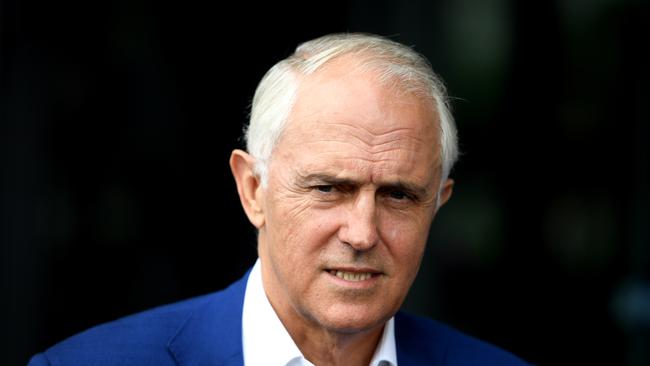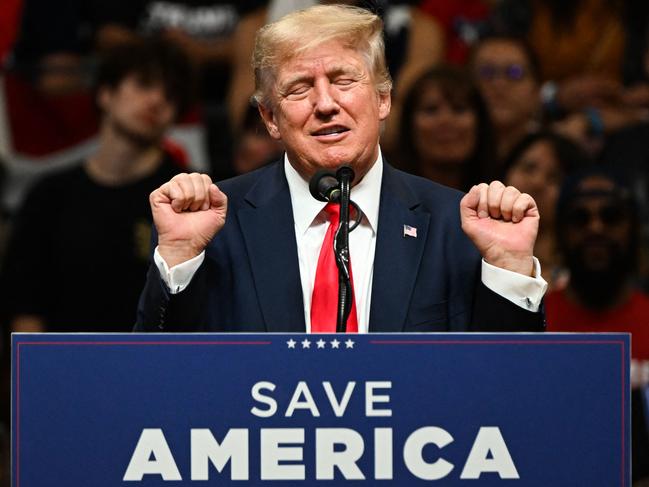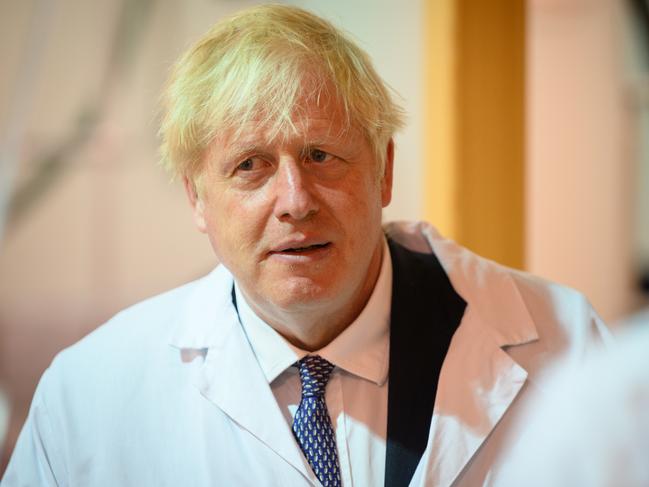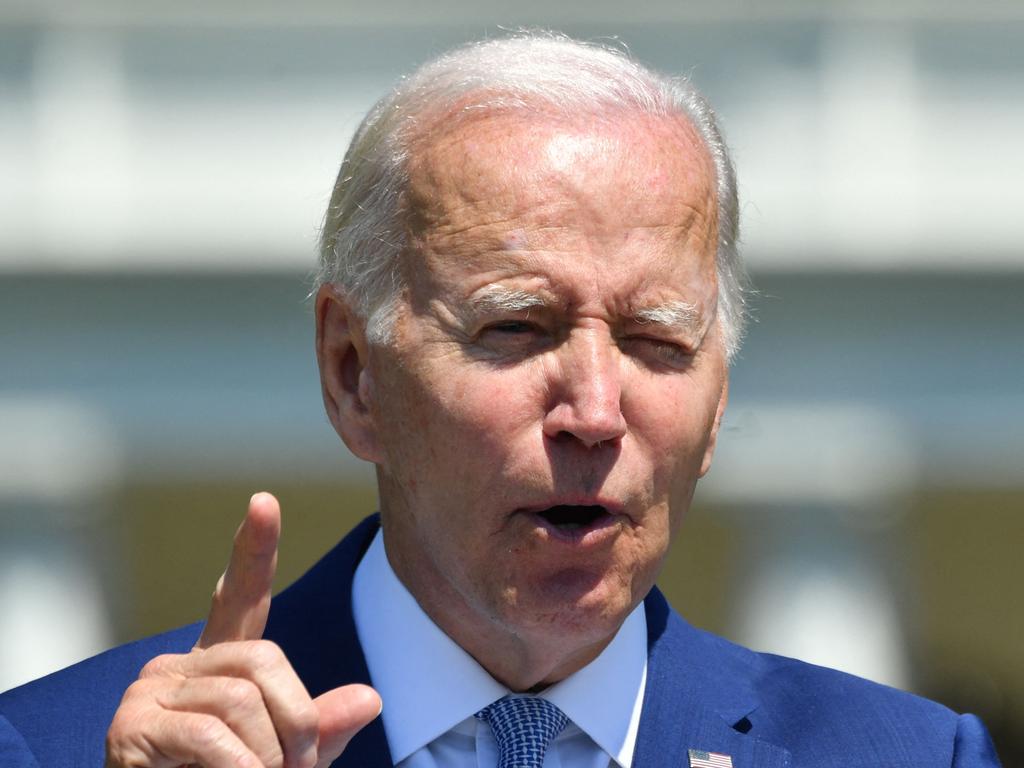
The messy demise of Johnson was not a surprise. Almost everything about the British prime minister was shambolic and fantastical, and headed for an unhappy ending. Johnson’s only governance rule appeared to be chaos. The normal rules didn’t apply to him. His attachment to the truth was loose. He ignored the distinction between lying to protect the national interest – something many leaders do – and lying to save his own skin. His delusional self-belief was bound to be his undoing.
Johnson, the man who convinced a majority of voters to decouple Britain from Europe, was both the most transformative British politician of his era and the most narcissistic by a country mile. Johnson’s initial refusal to step down after more than 50 resignations in his government, risking national political stability in an effort to stay in power, points to a common thread joining him to Trump and Turnbull.

As with Johnson, Trump’s driving political ideology was self-belief and power. Like Johnson, Trump broke rules to suit himself. He played the political outsider, bypassing much of the mainstream media to become president in 2016, his presidency forever tainted by breaking the most sacred democratic compact: rejecting the 2020 election result, even demanding that his vice-president, Mike Pence, block the certification of that result.
As in Britain, where the Tories morphed into the Johnson Party, in the US Trump didn’t join the Republican Party, the Republican Party joined Trump – with mumbling dissenters in the background.
Love them or loathe them, these two men transformed their countries. Johnson and Trump were political mavericks who shook both sides of the political establishment out of their complacency. Johnson in 2019 won the biggest Conservative majority since 1987, dismantling Labour’s red wall through England’s post-industrial midlands and north, and secured a Yes vote to Brexit in the process.
Trump stands as a reminder that when political parties mock and ignore large swathes of voters, there will be a reckoning of sorts. His other legacy will be longer lasting. His transformation of the US Supreme Court means abortion rights have been returned to the states, after earlier courts circumvented the normal democratic process that could have better cemented lasting social change.
Even Ruth Bader Ginsburg agreed that Roe v Wade “halted a political process that was moving in a reform direction and … prolonged divisiveness and deferred stable settlement of the issue”.
In keeping with his unprincipled presidency, the mercurial Trump enabled the Supreme Court to return democratic settlement of issues to the states, only to reject the democratic settlement that ended his presidency.

In Australia, Turnbull is the closest we came to watching a similar story of unbridled ego unfold and implode. Turnbull shared Johnson and Trump’s ego-driven determination to use a political party as a conduit to power. All three men considered themselves bigger than that party, more important than political norms that underpin their respective countries. As with Johnson and Trump, Turnbull’s determination to stay in office risked being dangerously bad for the country. As Aaron Patrick lays out in Ego, published last month, “One prime minister considered breaking this democratic pact. In 2018, Malcolm Turnbull wanted to involve the Governor-General, Sir Peter Cosgrove, in the Liberal Party’s decision to remove him as leader. Turnbull considered calling an election to resolve the intra-party leadership dispute. He put pressure on his attorney-general, Christian Porter, to declare a rival legally unfit to be a member of parliament. All three actions demonstrated that Turnbull was willing to put personal interest ahead of the national good.”
What is worse? A leader whose ego brought them down, and refuses to leave office in a dignified manner? Or a former leader who spends years following his forced political exit undermining and destroying the careers of those who didn’t support his demented efforts to cling to power? It’s line ball. In Turnbull’s case, the question doesn’t need answering because he did both.
The former Australian PM’s most comfortable habitat has become the Twittersphere and the ABC, where he rails against his enemies, establishing his fame as one of the country’s most disgruntled former leaders, seemingly unable to come to terms with his short-lived prime ministership.
Will we see more narcissistic leaders such as Johnson, Trump and Turnbull emerge in the future? Human nature hasn’t changed. But society has. We are more fragmented, more polarised, less inclined to show party loyalty and more prone perhaps to searching for personalities.
Twitter is a breeding ground for those who misunderstand their influence. Social media unleashes a daily frenzy, its echoes reverberating into the mainstream media where more and more journalists are activists. Governments are frequently gummed up, suffering from analysis paralysis that makes it harder to reach decisions and implement them. Britain faces another Scottish referendum. Our own federation was a laughing-stock during Covid. Americans can’t agree on something as existential as better gun control.
Perhaps the hyper news cycle, the madness and intensity of social media, and the complexity of government today have irrevocably changed the nature of politics and therefore the kinds of politicians who rise to the top. It’s not a comforting thought, but maybe only supremely self-centred politicians, people whose confidence verges on narcissism, can succeed in today’s hypercritical world.
However, let us not despair yet. The Hawke and Howard eras are still relatively fresh and remind us that we can have determined leaders whose driving ambition is founded on convictions and ideas, men able to work with and empower strong-minded and determined cabinets.
The Hawke and Howard cabinets suffered their fair share of personal rivalries. But, as Tony Abbott wrote recently, the “main figures played by the rules. They were in it more for the country than for themselves. Their arguments were about issues, not personalities.”
Moreover, narcissism has always been part of politics. Is Johnson more narcissistic than was Winston Churchill? Was Turnbull worse than Kevin Rudd or Billy McMahon? These more recent egocentric, self-absorbed men may represent a blip in time.
Perhaps Australia will once again be led, whether by Anthony Albanese or a successor, by a transformative leader who is not a next-level narcissist. The jury is out.







During the past five years we have witnessed the rise and demise of three political leaders – Boris Johnson, Donald Trump and Malcolm Turnbull – all with oversized egos, even by normal political standards. Is there something different about the modern political era, new pressures, unique forces, that will make narcissism the new norm? And aside from satisfying their thirst for power, what’s in it for us?